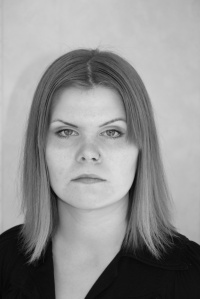Sofia, who is currently studying pharmacy in Turku conducted her interview with the grandfather of a friend by phone, living 600 kilometers apart.
Jorma Iiskola was born close to Kouvola in southeastern Finland in 1935 and shared a fate with 72 000 other Finnish children – at the age of seven he was sent to Sweden, away from the war that raged in Finland in 1942. When the war broke out, Jorma’s family lived in Espoo, close to Helsinki. His father left to serve the country and his mother and nine children stayed behind. Eventually, Jorma was lucky enough to be able to leave the country to live with a Swedish foster family. Naturally, being separated from your family at such a young age is very emotional, and as he was crying on the train, a soldier said that he would do anything to make him stop crying. Jorma replied: “You can turn the train around and I will stop crying.”
Jorma ended up in the Swedish city of Örebro on the 12th of February 1942, the birthday of his to be foster father, Bengt. The same year, his wife Iris gave birth to a girl that they named Ylva. Bengt and his two brothers owned a tailor shop, where Bengt tended to the office and the family’s living standard was rather typical for the middle class.
Jorma was completely Finnish-speaking upon arriving in Sweden – he did not speak a single word of Swedish. Communicating was naturally very difficult, as Finnish and Swedish are from entirely different linguistic origins. The food was also different from what he was used to, and getting him to eat proved to be a challenge. One night, Jorma pointed at the cupboard filled with cooking pots and then at the potato sack. Soon enough, he got his first meal that he truly was able to wolf down: cooked potatoes with brown gravy.
When the frontiers were at a standstill, Jorma was allowed to return home to Finland for the first time. Communication between his home in Finland and his residence in Sweden was normally limited to a few letters that were hard to translate. Jorma remembers returning home with the ferry from Turku, sleeping in a cargo hold with bunk beds along the side.
Jorma was late in attending school due to his linguistic handicap. However, he soon gradually forgot his native Finnish tongue in favor of becoming completely Swedish-speaking. He spent a total of five years in Sweden and returned in 1947 when it was deemed safe to return permanently.
Upon returning home to Finland, the farewell was very emotional at the train station. Jorma now had two homes. When coming back to his Finnish home, the difference in the standard of living was enormous. He went from a middle-class Swedish family to the poverty that plagued most of the Finnish people. When he returned, he would cry and wonder why he had to go back to this country and this endless poverty. Upon resuming school, the teachers were understanding when it came to his situation, and he attended the rest of the so-called “folkskola” in Swedish. He later returned to Örebro to work with gardening, as the door was always open to his Swedish home. He then applied to become a teacher in Nykarleby in Ostrobothnia, Finland and was accepted on the third try.
The last year of the teaching seminarium Jorma attended a conference in southern Sweden and took the opportunity to go to Örebro to walk down the streets that still felt like home. Jorma is still in contact with his Swedish sister Ylva. When Jorma’s foster father Bengt turned 85 years old, Jorma once again returned to Örebro to participate in the celebration. He wanted an answer to the question why he, the boy who was so attached to Swedish culture, was sent back to Finland. His foster father’s answer is one that Jorma will never forget: Bengt reasoned that Finland already lost so many young men, and every single one that the country got back would count.

